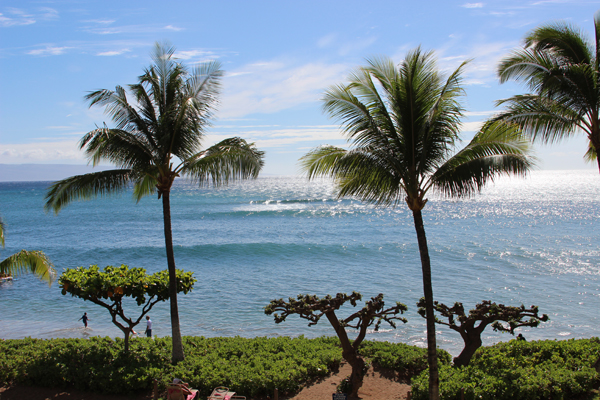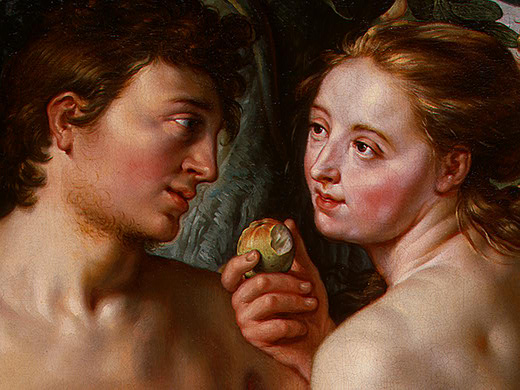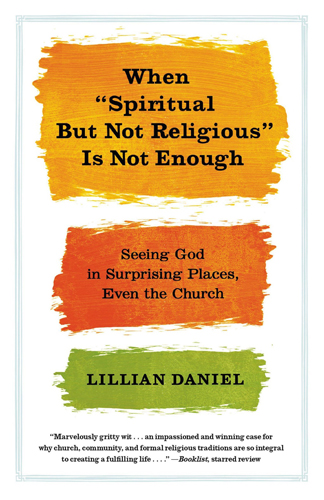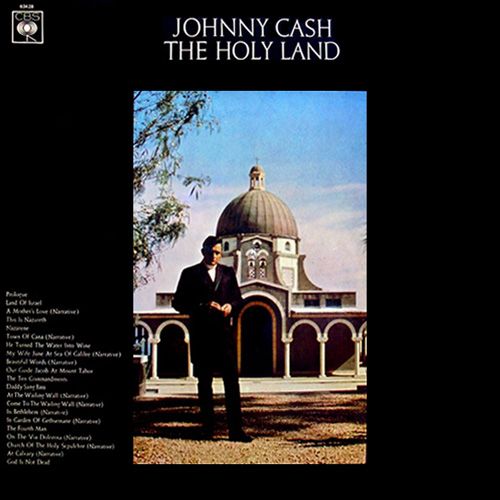 The following sermon by Steve Beard was delivered July 21, 2013, in the Honolua United Methodist Church in Maui, Hawaii.
The following sermon by Steve Beard was delivered July 21, 2013, in the Honolua United Methodist Church in Maui, Hawaii.
Yesterday, there was a young woman sunning herself in the ocean on one of those personal air mattress rafts just a few miles down the beach from this church. One moment she was basking in the sun, and the next moment she was flailing around, attempting to sit up on the flotation device because a sea turtle – the size of a small Volkswagen – was swimming next to her.
Such is life in Maui. Aloha!
As I saw her panicked – and yet excitable and gleeful – I thought of the ancient text from Genesis, “And God said, ‘Let the water teem with living creatures, and let birds fly above the earth across the vault of the sky.’ So God created the great creatures of the sea and every living thing with which the water teems and that moves about in it, according to their kinds, and every winged bird according to its kind. And God saw that it was good.”
I love that. Subtle and provocative: He saw that it was good!
Gratitude
I want to thank the Rev. Tevita Maile for sharing his pulpit this morning in such a beautiful sanctuary. Mahalo.
I live in Houston, Texas. And every single day, I get up and see a poster hanging in my home for the 2000 Triple Crown surf contest on the North Shore of Oahu. I have been to the North Shore a handful of times and for the last 20 years, the small town of Haleiwa has been my vision of paradise. It is filled with tropical beauty, vivid colors, and stunning surf – and it is far away from the hustle and bustle of Honolulu.
This is my first time to the island of Maui and I am overwhelmed with the same profound beauty. In response, allow me to take a few moments this morning and ponder the question: Is it easier or more difficult to find God in paradise?
I am greatly relieved that the human story told in the Bible begins and ends in the gardens of paradise. Not heaven, but paradise – the front porch to eternity. The lush gardens with the Tree of Life bookends both Genesis and The Book of Revelation.
• Genesis 2:8-9: “Now the Lord God had planted a garden in the east, in Eden; and there he put the man he had formed. The Lord God made all kinds of trees grow out of the ground — trees that were pleasing to the eye and good for food. In the middle of the garden were the tree of life and the tree of the knowledge of good and evil.”
• Revelation 2:7: Writing to the church at Ephesus: “To the one who is victorious, I will give the right to eat from the tree of life, which is in the paradise of God.”
Let me make a few observations about the gardens of paradise.
1. Living in paradise is what God intended for you. It was his first choice. It was his first plan. It was his heart’s desire.
 Choices have been set before us in life and you are free to choose according to your desires. According to the Scripture, Adam and Eve made a choice and the trajectory of history was changed forever.
Choices have been set before us in life and you are free to choose according to your desires. According to the Scripture, Adam and Eve made a choice and the trajectory of history was changed forever.
There are consequences to the choices we make, but they are not unforgivable nor unredeemable.
Whether you are at the entrance gate of adulthood or the exit gate of this earthly life, it is important to remember that the Tree of Life and the garden of paradise is God’s first choice for you.
The truth of the matter is that the Bible is loaded with specific geographical hotspots where man encountered God. There are so many gardens in the Bible you need a weedwacker to get through them all. We are told that the garden of Eden was in the east. But there are also mountaintop experiences described. Wandering in the wilderness. Even Jesus was tempted by the devil in the desert.
Currently, we are approximately 8,447 miles east of what is commonly thought to be the Garden of Eden. I only mention that because God takes our locations in life very seriously. He takes your place in life very seriously.
Not long ago, I was getting my hair cut and I asked the stylist if she was from Houston. She said, “Yes sir! I’m from right here. I don’t even want a passport because I have everything that I need right here.” I was startled by her response. After all, let’s be honest, not even Sam Houston wanted to live in Houston because of the humidity.
Nevertheless, we all have our ideas of paradise. You have heard of a surfers paradise, shoppers paradise, tourist paradise, foodie paradise. There are more than two dozen cities in the United States called Paradise. Why? Because we all want a little bit of that.
2. Paradise is so alluring that it can throw our spiritual compass off track. The Rev. Lillian Daniel recently wrote a remarkable book entitled, “When Spiritual But Not Religious is Not Enough.” She tells the story of a man who wanted to share his testimony with her when he found out she was a pastor. Apparently after having a tumultuous life within the church, he embraced a different path.
 He found himself spending Sunday mornings sleeping in, reading the New York Times or putting on his running shoes and taking off through the woods. “I worship nature,” he told her. “I see myself in the trees and in the cicadas. I am one with the great outdoors. I find God there. And I realized that I am deeply spiritual but no longer religious.”
He found himself spending Sunday mornings sleeping in, reading the New York Times or putting on his running shoes and taking off through the woods. “I worship nature,” he told her. “I see myself in the trees and in the cicadas. I am one with the great outdoors. I find God there. And I realized that I am deeply spiritual but no longer religious.”
Rev. Lillian responds: “I was not shocked or upset by the man’s story. I had heard it many times before — so many times I could have supplied the details. Let me guess, you read the New York Times every Sunday, cover to cover, and you get more out of that than the sermon? Let me guess, you find God in nature? And especially in sunsets?”
She continues: “As if the people who attend church had never encountered all those psalms that praise God for the beauty of natural creation, and as if we never left the church building ourselves. God in nature? Really? The theme can be found throughout the Bible. When you push on this self-developed spirituality, you don’t find much. God is in the sunset? Great, I find God there too. But how about seeing God in cancer? Cancer is nature too. Do you worship that as well?”
The point Lillian Daniel is driving home is this: Sunsets are pretty, but they will not hold your hand at the doctor’s office. The crashing waves are dynamic, but they will not help you rebuild your house after a fire. Waterfalls are breathtaking, but they won’t hold you while you weep.
She would say that it is the messed-up and sometimes nutty folks in a local church who do what nature is incapable of doing.
Go ahead, hug a tree. But do yourself a favor and put your faith in the One who shaped the Grand Canyon with the pressing down of his thumb, and created the Alps with his fingertips, and created Maui with a smile.
3. Your finest hours of victory and greatest defeats can be found in the lush gardens in your life. For Jesus, it was in a garden that he sweat drops of blood. It was in a garden that he experienced his greatest agony, his greatest suffering, his most profound loneliness, his greatest betrayal.
Do not be deceived by the beauty surrounding you. The devil rolled out the red carpet for original sin like a slick-talking car salesman with a trunkful of snappy red delicious apples – in a garden. Sometimes the garden is the anti-paradise. Sometimes it is the playground for your loneliness, shame, and fear.
But gardens are also your reminders of hope. The women who first saw the risen Christ mistook him for a gardner – in a garden. New life was announced in a garden. “Death does not win” was punctuated from a garden. The devil’s foiled plan was danced upon in a garden.
Three days prior, dangling half naked from a tree, it was Jesus who proclaimed to a thief that he would be with him in paradise. Imagine that. The man merely asked to be remembered. Covered in blood and spit and humiliation, the thief knew his place. He knew his heart, he needed no sermon.
Those around the thief mocked and jeered and taunted. According to theologian N.T. Wright, “Jesus was telling that thief that he would pass from the scaffold of shame into the joy of God’s presence forever.”
Paradise awaits!
Corrie Ten Boom said it so clearly, “You may never know that Jesus is all you need, until Jesus is all you have!”
Where we are headed, my friends, is a place of immeasurable beauty. Jesus said, “I am going to prepare a place for you…. So that where I am, there you may also be.”
John Wesley, the founder of Methodism, said, “One design you are to pursue to the end of time – the enjoyment of God in time and in eternity.” We are not often invited to enjoy God, but let us pursue it!
The unseen kingdom
Several years ago, the band U2 released an album called: All That You Can’t Leave Behind. The very title was an interesting concept about the spiritual life. After all, you can leave behind your Cadillac and your condo and your cash – and you will! You will also leave behind this mortal shell.
Your soul is a different aspect of you. On the song “Walk On,” Bono sings, “You’re packing a suitcase for a place none of us has been / A place that has to be believed, to be seen.” This is what Jesus was saying to the thief. This is what Jesus whispers to you and me.
Our vantage point must change to perceive this alternative reality. Don’t be surprised or scandalized. To discover the heavens, we turn to the telescope. To discover what is happening inside the human body, we depend upon the x-ray machine. To discover what is coursing through your veins, we utilize a microscope. To discover the unseen kingdom of Heaven, we must embrace a vision of faith.
St. Paul writes, “Eye hath not seen, nor ear heard, neither have entered into the heart of man, the things which God hath prepared for them that love him.”
From a different angle, Voltaire observed, “Paradise was made for tender hearts; hell, for loveless hearts.”
 When I was young, my mom and dad had a “Johnny Cash in the Holy Land” album. It was 1969. And there is a section of the album where he was describing what it was like on the Mount of Olives and then entering into the Garden of Gethsemane. “Olive trees are probably two thousand years old or more,” said Cash. “And now there’s a possibility and a very strong possibility that beneath or around some of these very same olive trees that we see here, Jesus himself sat or stood with his disciples.”
When I was young, my mom and dad had a “Johnny Cash in the Holy Land” album. It was 1969. And there is a section of the album where he was describing what it was like on the Mount of Olives and then entering into the Garden of Gethsemane. “Olive trees are probably two thousand years old or more,” said Cash. “And now there’s a possibility and a very strong possibility that beneath or around some of these very same olive trees that we see here, Jesus himself sat or stood with his disciples.”
I will never forget hearing Cash describe that place. I can imagine Johnny and June moving from tree to tree in order to possibly stand in the very same spot where Jesus knelt and sweat drops of blood – in a garden.
Two years before that, Elvis Presley recorded a song called “In the Garden.” We used to sing that song in my United Methodist church as I was growing up. Perhaps you’ve heard it.
“I come to the garden alone / While the dew is still on the roses
And the voice I hear falling on my ear / The Son of God discloses.
And He walks with me, and He talks with me / And He tells me I am His own;
And the joy we share as we tarry there / None other has ever known.
“He speaks, and the sound of His voice / Is so sweet the birds hush their singing,
And the melody that He gave to me / Within my heart is ringing.
I’d stay in the garden with Him / Though the night around me be falling,
But He bids me go; through the voice of woe / His voice to me is calling.”
That beloved hymn was written by Charles Austin Miles in 1912. It speaks of such intimacy, vividness, and beauty. According to his great-granddaughter, the song, however, was written “in a cold, dreary and leaky basement in New Jersey that didn’t even have a window in it, let alone a view of a garden.”
That should not startle us. For the kingdom of God is both already and not yet. And it is something to believe in, in order to be seen. And yet, it is something that can be experienced without eyesight. Counterintuitively, we can walk through the garden of paradise while sitting in a windowless basement.
St. Paul reminds us that “For now we see through a glass, darkly; but then face to face: now I know in part; but then shall I know even as also I am known.”
And that, my friends, will be true paradise.
In the name of the Father and the Son and the Holy Spirit. Amen.